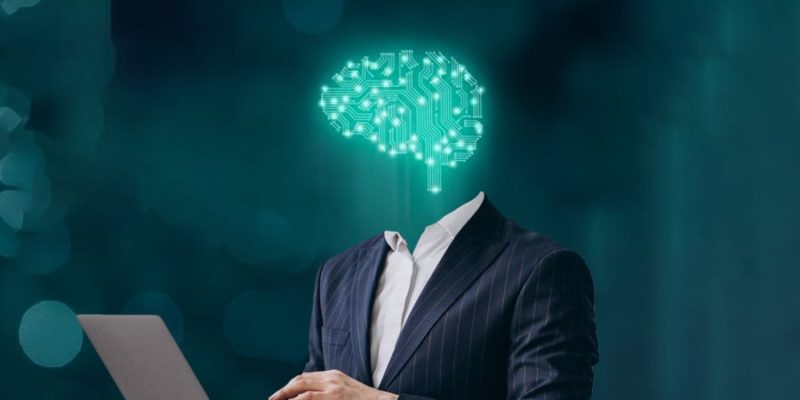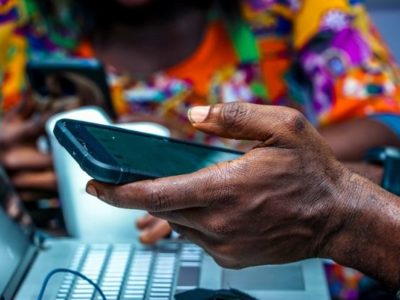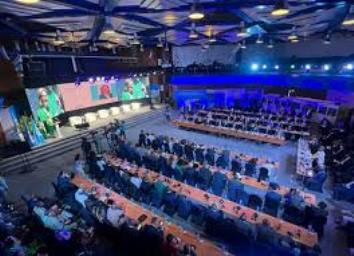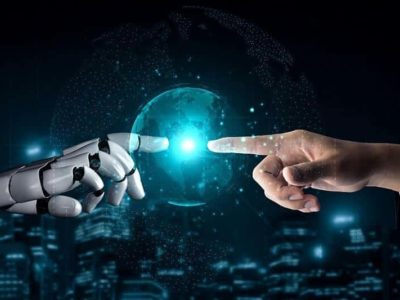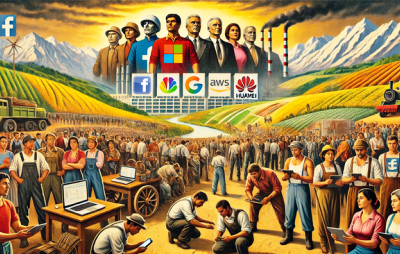By Deepak Chopra
AI turned into a flash phenomenon overnight, despite the decades of development that have gone into it. Commentary has already divided into pro and con, serving up visions of a dystopia ruled by super-computers run amok or, on the other hand, a smarter, more efficient way to improve every aspect of human life. This kind of pro and con goes back at least as far as the Stone Age, when the first sharp flint blades made it easier to skin hides off animals or else kill someone.
RELATED: OpEd: Is AI a Bridge to Infinity?
But if you leave aside the whole scheme of pro and con, AI is the first tool that has the ability to do something unique—it can make us more human. This requires a little explanation. Using a flint blade, bullet, armored tank, or atom bomb as improved mechanisms of death taught us nothing about being human that we didn’t already know, namely, that violence is inescapable in human nature.
For good or ill, every tool has reinforced something we already know about ourselves. The screw, lever, and inclined plane didn’t teach us that we like to build things and want to get more efficient at it. Tools are extensions of basic desires, and no matter how strange, subtle, imaginative, or outrageous the desire, we reach for a tool that makes it easier to fulfill.
To be different, AI has to cross a threshold no previous tool (including the most advanced technology) has achieved. This is the threshold of self-awareness. Self-awareness doesn’t need any tools; it isn’t driven by desire; it persists without change over the entire history of humanity. Before AI, tools had a serious flaw. They detracted from self-awareness. This happened because of their link with desire.
If you get better at doing mechanical things like building bridges, exploring space, devising better video games, or gathering information, a shift occurs. You begin to think that doing mechanical things is the purpose of being human. One of the greatest fears in this era of hacking is that the power grid might be sabotaged for longer than a night’s blackout. When electricity goes away, so do TV, computers, security systems, advanced communications, and hospital machines, to name the most immediate losses.
Far worse than in the pandemic lockdown, people would begin to feel empty, powerless, anxious, depressed, and insecure. A mask would drop away, the mask that deludes us into thinking that our purpose in life is constantly to improve the mechanical side of existence.
People aren’t prepared for illusions to suddenly drop away. Being thrown back onto who you really are is an emperor’s new clothes experience that can be devastating—you are exposed nakedly to yourself. Yet in the world’s spiritual traditions, knowing yourself is the path to freedom and the end of suffering.
This is where AI enters the picture as something new. If we set it the task of making us more human, the following shifts are possible.
- By taking over meaningless routine work, AI creates a space for more meaningful activity. Forced work that has no meaning is a major way we lose our humanity in everyday life.
- AI bots can bring personal psychotherapy for free to everyone who wants it. Being trapped in mental suffering makes us less than human, and right now the vast majority of the human race has no escape even from milder forms of mental distress.
- AI can help people break bad habits by being a constant presence advising how to escape the allure of habit. Bad habits defeat our best intentions by repeating the past in self-defeating ways. AI can show us, moment to moment, when we are repeating the past and then suggest how to use repetition in a positive way (imagine a refrigerator that says, “Reach for the carrots, not the ice cream.”) A
- n AI bot fed with enough information can reveal your true motivations and your ties to old conditioning. Take a few steps in that direction, and insight begins to be sparked.
- Once it gets powerful enough, AI can offer global solutions to climate change, fossil fuels, species extinctions, etc. Once there is no excuse to debate what the best solutions are, nations can drop the pretense that denial and irrational obstruction are viable responses.
These are all examples of seeing reality more clearly by seeing ourselves more clearly.
- Once you realize that you are not here to do mechanical things there is an opening for seeing why you actually are here. This is a step farther than just creating more space for self-awareness. Self-awareness is immutable; therefore, it doesn’t drive desires, and as long as human life is desire-driven, people can use all the benefits of AI to ratchet up the same old distractions. You have to favor self-awareness in order to benefit from it.
- Repeated pain and suffering doesn’t really motivate people to become more self-aware. But as AI removes the suffering of mental and physical illness in all kinds of ways, it will enable people to drop the excuses that come along with pain and suffering, such as “I am a victim,” “I am too sick to participate,” “I’m destined to age and get weaker,” and “I’m only going to die anyway.”
- When illusions fall away, what’s left is more real, and when all illusions fall away, only reality is left. The ultimate promise of AI is that humans will look around, and seeing no external reason to buy into illusions, we will have an “aha” moment that reveals who we really are, which is pure self-awareness. Even if self-awareness is slightly favored, it begins to become more important in answering the question, “who am I?”
- That’s the question that makes us most human, and by helping us to actually pose the question rather than running away from it, AI has the potential to make us more human from the inside out as no tool has ever done before.
DEEPAK CHOPRA MD, FACP, FRCP, founder of The Chopra Foundation, a non-profit entity for research on well-being and humanitarianism, and Chopra Global, a whole health company at the intersection of science and spirituality, is a world-renowned pioneer in integrative medicine and personal transformation. Chopra is a Clinical Professor of Family Medicine and Public Health at the University of California, San Diego and serves as a senior scientist with Gallup Organization. He is the author of over 90 books translated into over forty-three languages, including numerous New York Times bestsellers. His 91st book, Total Meditation: Practices in Living the Awakened Life explores and reinterprets the physical, mental, emotional, relational, and spiritual benefits that the practice of meditation can bring. For the last thirty years, Chopra has been at the forefront of the meditation revolution. His latest book, Living in the Light co-authored with Sarah Platt-Finger. TIME magazine has described Dr. Chopra as “one of the top 100 heroes and icons of the century.” www.deepakchopra.com
.

